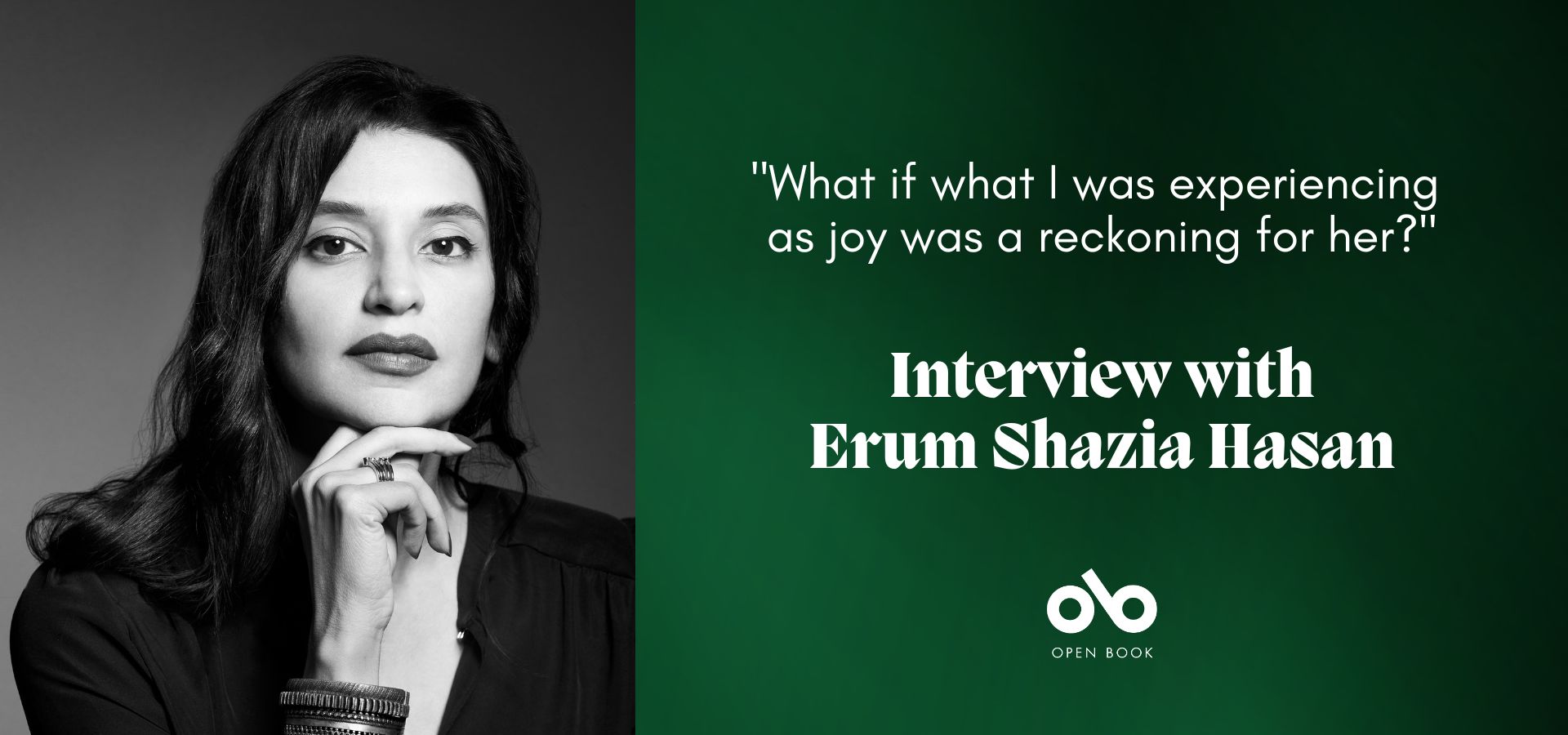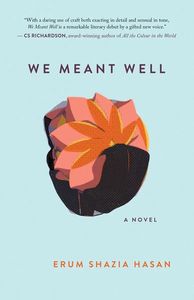Erum Shazia Hasan on Exploring the Complex Moral & Emotional Landscape of International Aid Work in Her Brilliant Debut
It may be a universal truth that phone calls that come in the middle of the night never bring good news, and for Maya, a mother, aid worker, and the main character in Erum Shazia Hasan's We Meant Well (ECW Press), the news is chilling indeed: Marc, an affable colleague of hers, has been accused of assaulting a girl in Likanni, thousands of miles from Maya's comfortable life in California, where she works remotely for their charitable organization. The orphanage they run in the fictional Likanni is meant to do good for the most vulnerable, and that's how Maya has been able to think of her role in the world up until now – a person who does good.
Uncomfortable, insightful, and nuanced, We Meant Well explores the shattered legacy of colonialism, the impossibility of doing good without mixed motivations, and the painful power dynamics that underpin aid work around the world. Hasan draws on her own extensive experience in the aid work world to ask difficult and essential questions – questions Maya is tasked with answering as she arrives on the first flight to Likanni.
To add to the complexity of her situation, the girl accusing Marc is Maya's own former protégé, the local chief's daughter. She has no proof, but she stands bravely by her story. Marc's guilt would be a disaster for the charity, and Maya's absence from home is creating problems with her family back in California. Tense and smart, Hasan's writing holds a bright light up to often unexamined issues through a cast of deeply compelling characters, anchored in the complex and fascinating Maya.
We're excited to speak with Erum today about the book. She tells us about the technicolour moment that sparked the novel's complex emotional landscape for her, why it was important to create a fictional setting for Maya's story (and how her professional experience helped her do so), and her advice for writers in the midst of their own long projects, including the wise instruction to "stop counting the days, months, and years".
Open Book:
Do you remember how your first started this novel or the very first bit of writing you did for it?
Erum Shazia Hasan:
I began writing this novel in a UN vehicle in Haiti. It was the month of February and I had just flown in from Toronto where the weather was -15 Celsius. After coming in from the gray of winter, everything felt vibrant in Port-au-Prince. The sun was shining, the flowers were in bloom, I could hear music on the streets—it felt like going from a black-and-white film to colour. Suddenly, the idea dawned upon me: what if a humanitarian was returning, but she wasn’t happy to be back? What if she had bad memories that she had to confront? What if what I was experiencing as joy was a reckoning for her? The concept of the novel was born. I excused myself to other colleagues in the car, pulled out my notebook, and began writing what was to be the second chapter of my book.
OB:
How did you choose the setting of your novel? What connection, if any, did you have to the setting when you began writing?
ESH:
The setting of the novel is in a fictional village (Likanni) in an un-named country. The reason for this is that I didn’t want to imprison a country or people in my representation. This gave me greater literary freedom to construct a place, its people, its landscapes. I also did not want the novel to serve as a historical or sociological text, it’s a fictional story – one about relationships and power, and how difficult it is to do right and I wanted to focus on that.
I was heavily influenced by many different countries. As a Sustainable Development Consultant, I have the privilege of traveling extensively, and chose to tease out certain similarities I noticed in post-colonial states struggling with poverty. I also pay homage to different countries colonized by the French – the food is from one place, the foliage from another, the building where the main character is staying from another. This created a pastiche of places, many of whom are facing similar challenges.
OB:
Did you find yourself having a "favourite" amongst your characters? If so, who was it and why?
Your CanLit News
Subscribe to Open Book’s newsletter to get local book events, literary content, writing tips, and more in your inbox
ESH:
My favourite is a side character named Seher. She serves as the moral compass of the novel and some of her traits reflect that of my partner’s.
OB:
If you had to describe your book in one sentence, what would you say?
ESH:
This sentence would likely change depending on the day but for today: This story is about Maya, a humanitarian, who in investigating a sexual assault allegation, discovers the lies she’s been telling herself.
OB:
Who did you dedicate your novel to, and why?
ESH:
I dedicated this novel to my husband who supported my writing in every way he could. I began this novel when I had two toddlers—a time when we had to observe their every move, ensuring they weren’t tumbling down stairs or eating marbles. My partner treated my writing as sacred, ushering me into quiet spaces while he took on the trials and tribulations of our kids. He read draft after draft; he came up with the main character’s name and the title of the book. Most importantly he believed in this novel when I lost confidence or stamina.
OB:
What if, anything, did you learn from writing this novel?
ESH:
That time means nothing when you’re writing a novel. I began writing eight years ago. I had years of drafts. Endless edits. Some encouragement and then some rejection. It can take months for responses from an agent, from publishers. One should stop counting the days, months, and years, and focus on the hope that one day, there will be a book.
______________________________________________
Erum Shazia Hasan was born in Canada, raised in France, and is of Pakistani and Indian heritage. She designs initiatives to help communities improve their livelihoods, ensuring opportunities for women while protecting biodiversity. A Sustainable Development Consultant for various UN agencies, she lives in Toronto with her husband and their two children.





